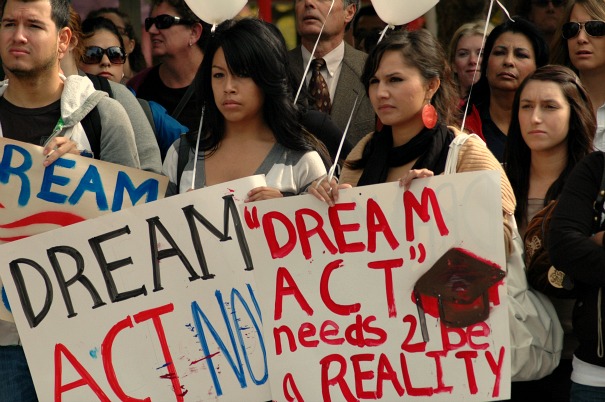Education Reporter
DENVER, CO - A large Colorado college had no authority to offer illegal immigrants a discount on tuition under a plan the school unveiled earlier this month.
The opinion from Republican Attorney General John Suthers is non-binding, and Metropolitan State College of Denver disputes his analysis. But it could lead to renewed debate about the place of undocumented immigrants at the state's post-secondary institutions.
Suthers said Metro State circumvented the Colorado General Assembly by approving the discount.
The Republican-controlled state House of Representatives earlier this year threw out a bill that would have created a tuition rate for undocumented immigrants similar to what Metro State has put forth.
"Reasonable people of good intentions and good faith can disagree about the wisdom of granting discounted tuition to undocumented students," Suthers wrote in his opinion.
"But that decision is one that under existing law must be made by the legislature, not individual institutions of higher learning," he added.
The Obama administration earlier this month shook up the national debate over immigration with the announcement of a rule change that would extend eligibility to stay in the country to illegal immigrants up to age 30 who came to the United States as children and do not pose a risk to national security. They would also be able to apply for work permits.
Separately, the U.S. Supreme Court is expected to rule any day on Arizona's tough immigration law, which among its provisions requires police to check the immigration status of anyone detained and suspected of being in the country illegally.
Metro State's plan is meant for illegal immigrants who have lived in the state for three years, graduated from high school, and not committed any crimes while in the United States.
The tuition of $3,358 per semester would be higher than for in-state students, but less than for out-of-state students. It is slated to be instituted in the fall.
By comparison, the out-of-state tuition rate at the school is over $7,900.
Suthers issued the non-binding opinion at the request of the state's multi-campus community college system, which may consider a similar rate structure.
Metro State's board of trustees said in a statement last Tuesday that it was never its intent to "disregard Colorado's law or its legislature," and that they do not believe they did.
"The structure of nonresident tuition rates by higher education institutions are not required to be authorized by the state legislature and the tuition rates contained no state subsidy," the trustees said.
But Suthers disagreed, and took a swipe at the college for not consulting his office before approving the plan. The school has an enrollment of about 24,000 students.
"Discounted tuition is a 'public benefit,' which under the current state law may only be provided to individuals who prove their lawful presence in the United States," Suthers wrote.
Several states including California and Texas have passed laws that allow some illegal immigrants to pay the same tuition rates as legal residents from within those states.




 RSS Feed
RSS Feed

